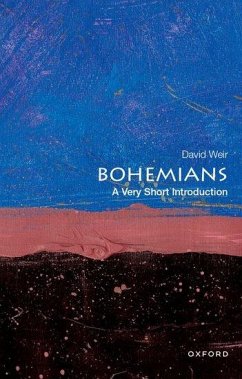The nineteenth-century Romantic myth of Bohemia emerged to describe the new conditions faced by artists and writers, who after the previous system of aristocratic patronage collapsed were free to move around in search of success. Yet most real-life bohemians have scant interest in commercial gain and are not so itinerant after all. Tracing these contradictions in bohemian cultures and lifestyles from the early nineteenth century to the present, David Weir explores the myth of Bohemia as it developed in various forms of expression--novels, plays, operas, films--and in key cities, including Paris, Munich, and New York. Weir concludes with a discussion of the legacy of Bohemia today as something outworn and dying, an exhausted tradition that somehow continues.







